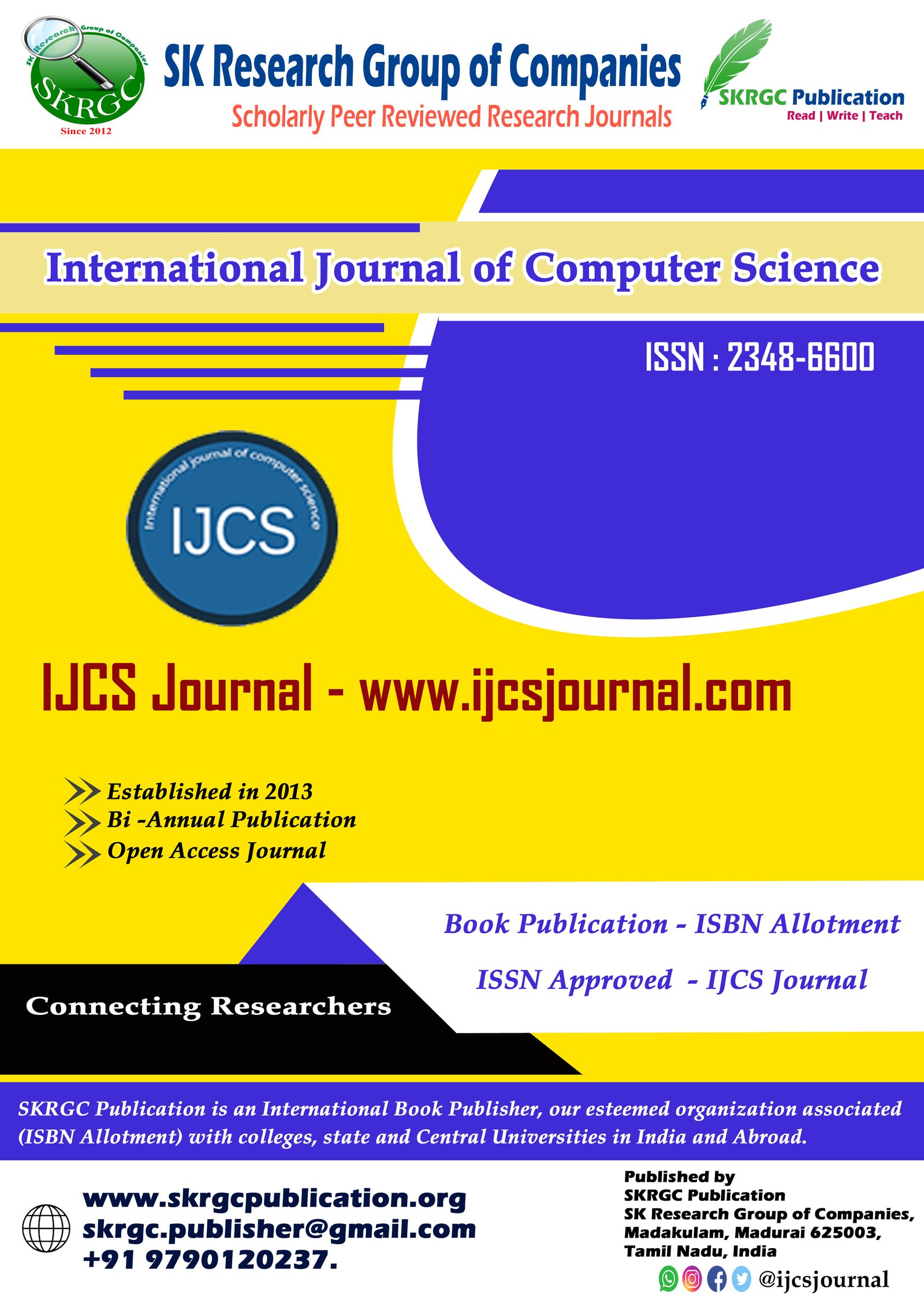THE ROLE OF ARTIFICIAL INTELLIGENCE (AI) IN THE EDUCATION FIELD
International Journal of Computer Science (IJCS) Published by SK Research Group of Companies (SKRGC)
Download this PDF format
Abstract
Artificial Intelligence (AI) in education is quickly changing conventional learning settings and providing creative ways to improve administrative, instructional, and learning procedures. By customizing learning experiences to meet the needs of each individual student, artificial intelligence (AI) technologies like machine learning, natural language processing, and intelligent tutoring systems are transforming personalized education. Real-time feedback, support for a variety of learning styles, and increased student engagement are all made possible by these technologies. AI is also essential for automating administrative work, which frees up teachers to concentrate more on teaching. This essay examines the many ways artificial intelligence (AI) is being used in education, such as predictive analytics, virtual assistants, automated grading, and intelligent tutoring systems. It looks at the advantages and difficulties of AI in education, highlighting the necessity of ethical issues and the significance of teacher preparation for efficient use of AI tools. Though cautious use and continued study are necessary to guarantee fair access and results for all students, artificial intelligence (AI) has the potential to develop more inclusive, effective, and data-driven learning environments.
References
1) https://www.ed.gov/sites/ed/files/documents/ai-report/ai-report.pdf
2) https://wjarr.com/sites/default/files/WJARR-2024-1217.pdf
3) https://www.researchgate.net/publication/351082272_Role_of_Artificial_Intelligence_in_Education
4) https://www.ijeltsjournal.org/wp-content/uploads/2022/07/vol4_no4_iss8.pdf
5) https://www.jetir.org/papers/JETIR2402146.pdf
Keywords
Human Intelligence, Super Intelligence, Problem-Solving, Learning.

